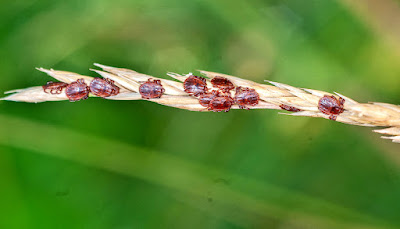A publication was released in Nature on the 13th of February 2022 suggesting that dead fragments of Borrelia burgdorferi, the bacterium that causes Lyme disease, continue to hang around in the body and can cause unhealthy inflammation condition in the central and peripheral nervous systems even after treatment.
This could explain why some people who get Lyme disease don't make a full recovery after taking antibiotics and experience ongoing pain, fatigue, trouble with their cognitive thinking, joint pain, headache, lower back pain, irritability, troubles with their cognitive thinking, sleep issues, depression, and even intestinal problems. This condition is also known as Post-Treatment Lyme Disease Syndrome (PTLDS).
Post-Treatment Lyme Disease Syndrome is still controversial today and there's currently no proven treatment.
In this study, the researchers applied fragment of B. burgdorferi on nervous system tissue extracted from euthanized rhesus macaque monkeys, and they observed the effects on both the frontal cortex in the brain and the dorsal root ganglion in the spinal column.
They found that inflammatory cytokines were dysregulated and reported several times higher in samples exposed to B. burgdorferi than in samples exposed to live bacteria. And as a consequence, to this cytokine storm the dead bacteria also caused cell death in brain neurons.
The effect of B. burgdorferi was particularly evident in the frontal cortex, which helps coordinate movement, organize thoughts, and control working memory. Researchers even suggest that this might be where the PTLDS fully or partly originates
"As neuroinflammation is the basis of many neurological disorders, lingering inflammation in the brain due to these unresolved fragments could cause long-term health consequences… Persistence of symptoms in some patients post-treatment indicates that in a subset of these patients, B. burgdorferi fragments in the nervous system could be a cause…Such antibiotic refractive conditions need novel anti-inflammatory approaches for therapeutics." says immunologist Geetha Parthasarathy from Tulane University in Louisiana.
This study emphasizes the importance of assessing the inflammation along with the pathogen detection. Therefore, at RED Labs we offer to test for effective Borrelia presence (=> Phage test) but also for the PTLDS (=> Pro-inflammatory Cytokine panel).
Recommended further reading:
• Post-Lyme disease syndrome (Błaut-Jurkowska J, Jurkowski M): “In relieving symptom rehabilitation, painkillers, anti-inflammatory and antidepressants medicines are recommended. Emotional and psychological supports are also necessary.”
• Diagnosis and treatment of Lyme arthritis (Arvikar SL, Steere AC. ) & Characteristics and clinical outcomes after treatment of a national cohort of PCR-positive Lyme arthritis. (Grillon A, Scherlinger M, Boyer PH, et al): ‘the arthritis is cured and Borrelia is eradicated in most patients, but in some cases proliferative synovitis may persist for months or several years, requiring anti-inflammatory therapy.”
• Lyme borreliosis (Stanek G, Wormser GP, Gray J, Strle F. Lancet.): “Management includes anti-inflammatory treatment with nonsteroidal anti-inflammatory agents, intra-articular corticosteroids, methotrexate, or synovectomy”




